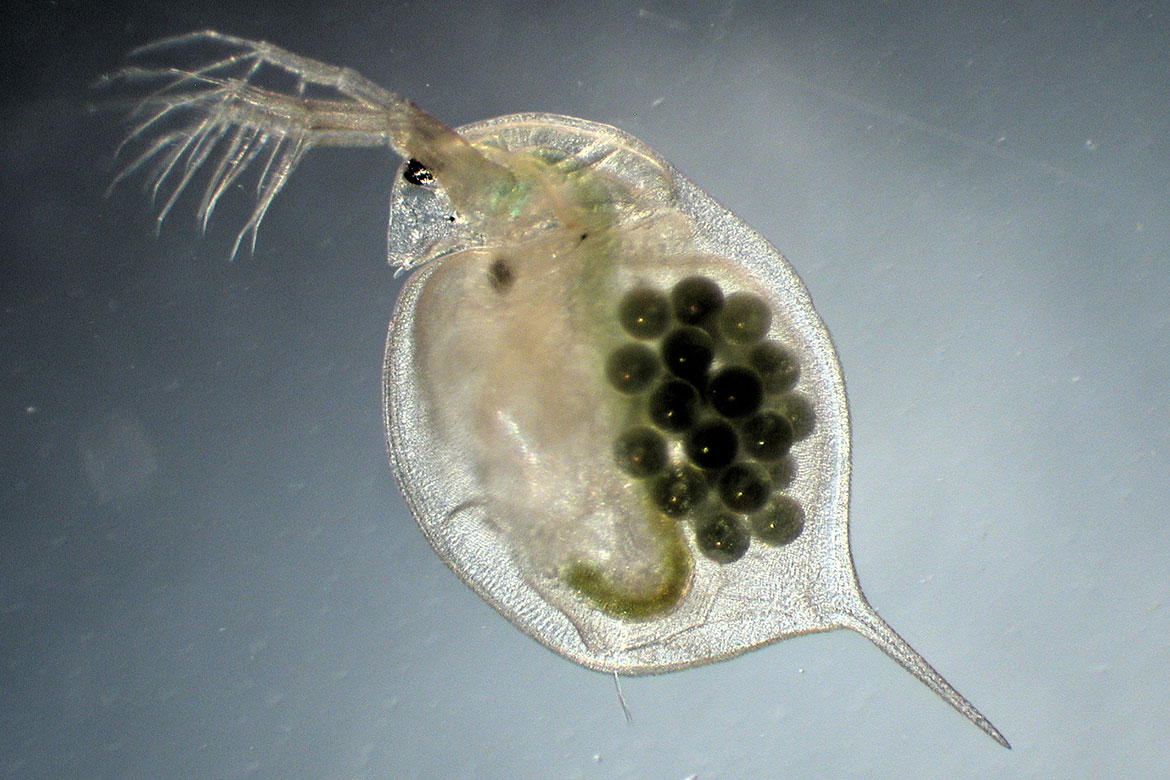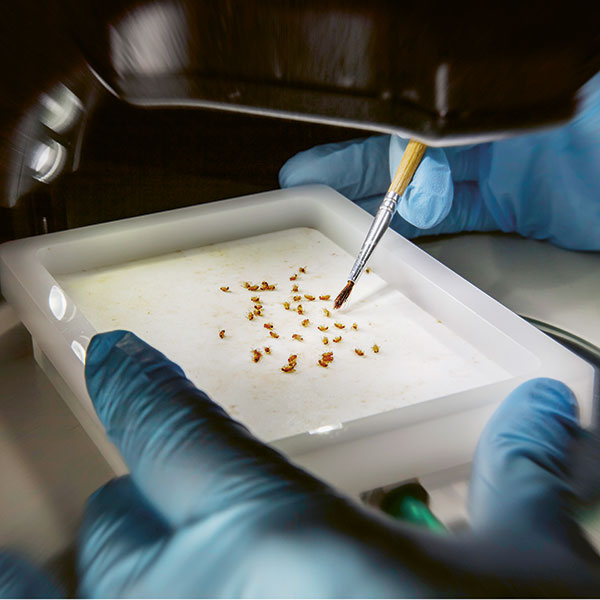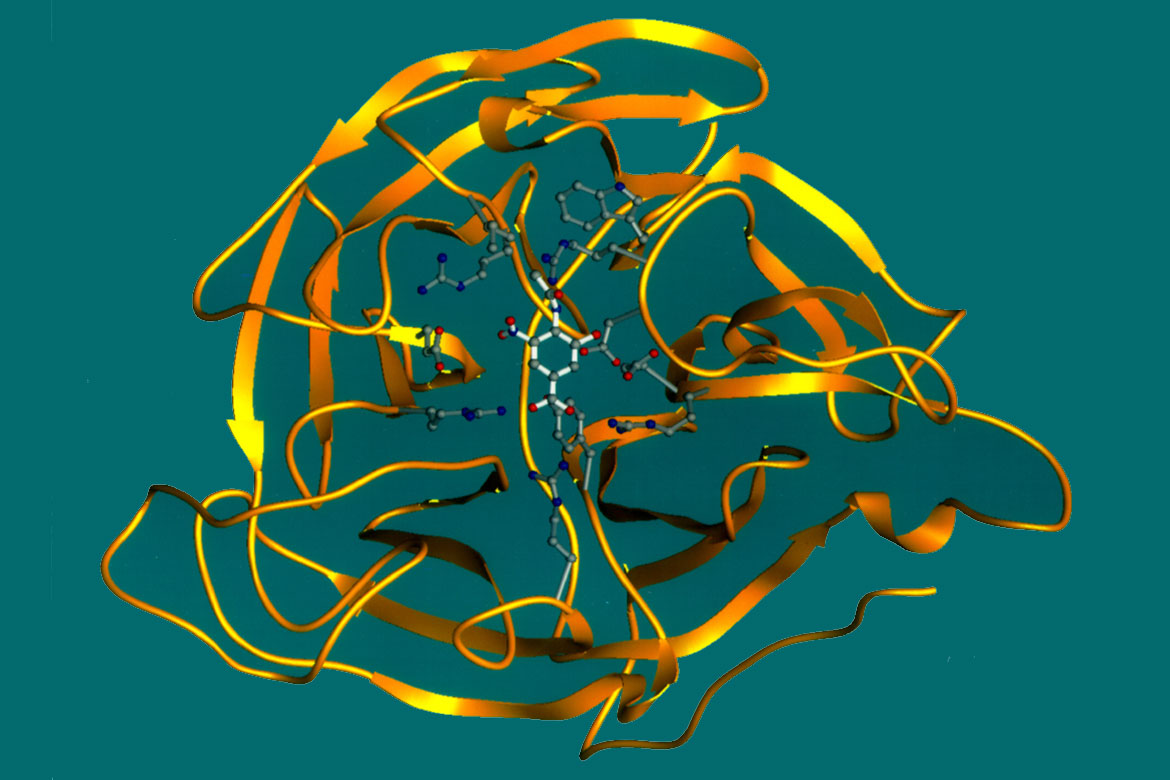ECOLOGY
Sugar helps through drought
Water fleas can adapt to the climate. A specific sugar helps their eggs to withstand dry summers better.

The green eggs of the water flea can survive a dry summer without any problems. | Image: Dieter Ebert
When a pond dries up or freezes, organisms living in the water need clever strategies to survive. This is why water fleas produce so-called ‘permanent eggs’. Researchers from the University of Basel have discovered that they can survive drought thanks to their containing a specific sugar.
Permanent eggs are small embryos that are protected against adversity and ‘awaken’ again as soon as conditions improve. “It never ceases to amaze us how resistant such dormant stages are in invertebrates”, says the study leader Dieter Ebert. His team suspected that a certain sugar – trehalose – might be important for the survival of permanent eggs in dried-up ponds. It was already known that this sugar protects bacteria and plants from drying out.
In order to find out whether this also works in animals, the researchers looked for trehalose in the permanent eggs of water fleas in habitats both dry and wet. They found that this sugar was primarily present in large quantities in those eggs that dry out in the summer. Trehalose turns the water in their cells into a kind of gel that prevents their tissue from rupturing when moisture is removed and the cells shrink.
“Not only does trehalose also seem to play a central role in animals, but water fleas have even adapted to local conditions”, says Ebert. This is important, he adds, because droughts are becoming more frequent in many places.




